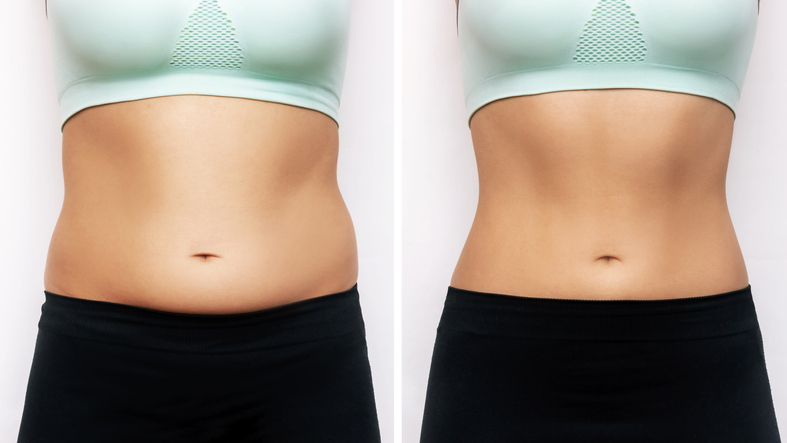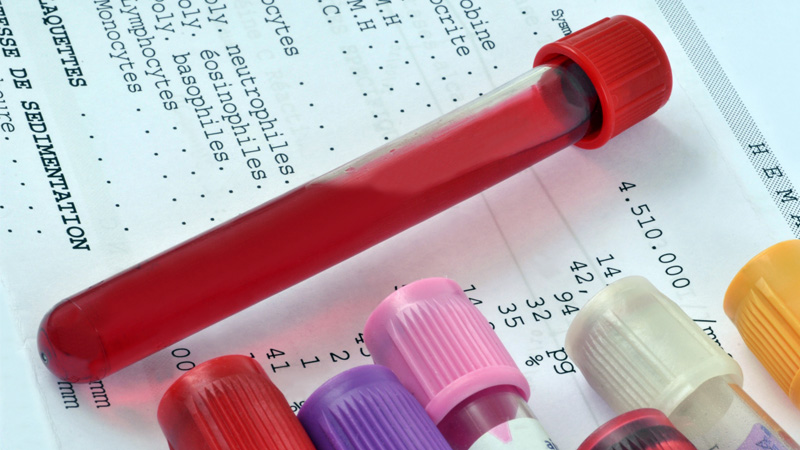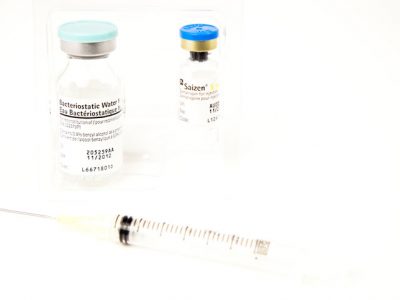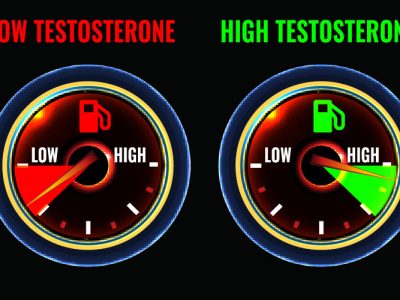- Home
- Growth Hormone
- Growth Hormone
- Growth Hormone Deficiency
- Growth Hormone Therapy
- Growth Hormone Injections
get startedThe Most Effective Hormone Replacement TherapiesHGH for Weight Loss
If you have ever wondered about hormone shots for weight loss, it’s time you learned more about the relationship between HGH, abdominal weight gain, and weight loss.
There is a definite link between human growth hormone (HGH) and your risk of obesity or being overweight. This is primarily due to HGH’s relationship to metabolism and the role that HGH plays in your ability to build muscle and burn fat from adipose tissue. On these pages, we will discuss the relationship between HGH, metabolism, insulin resistance, protein synthesis and, in this context, explain how HGH can be used for effective weight management.
Growth hormone replacement therapy for individuals struggling with weight is not only good for weight management, it can directly and indirectly lower the risk of obesity-related health conditions such as diabetes, metabolic syndrome, high blood pressure and heart disease.
Role of HGH in Weight Loss
In subjects with growth hormone deficiency, HGH injections can be a powerful weight loss solution. In fact, in many circumstances, HGH therapy for weight loss has been found to be more effective in getting to your ideal weight than traditional weight loss methods.
Losing weight, building muscle, and maintaining a lean body mass are common goals for many individuals, particularly men. While proper nutrition and exercise form the foundation of any weight loss journey, some people may face unique challenges due to factors like hormonal imbalances or metabolic issues. In recent years, human growth hormone (HGH) therapy has gained significant attention as a potential aid in weight loss efforts.
Before we discuss in detail how HGH can help you lose weight, let’s understand a little bit more about human growth hormone. HGH is a naturally occurring hormone produced by the pituitary gland located in the brain. It plays a crucial role in stimulating growth and cell reproduction, influencing numerous bodily functions such as bone density, organ health, and muscle growth. HGH levels tend to be highest during childhood and adolescence, promoting growth spurts, but gradually decline with age.
This age-related HGH decline leads to adult-onset growth hormone deficiency. Growth hormone deficiency can lead to several negative health impacts, not the least of which is a slower metabolism leading to weight gain. Conversely, HGH supplementation via growth hormone therapy can boost metabolism and help you achieve healthy weight loss and maintain a desired body composition.
How Does HGH Help You Lose Weight?
The relationship between HGH and weight management is a complex one. One of the most important ways that HGH impacts weight loss is through its influence on metabolism. Metabolism refers to the processes by which the body converts food into energy. HGH therapy can enhance metabolism and thereby help obese adults lose weight in several ways:
- Increased Lipolysis: HGH stimulates lipolysis, the breakdown of stored fat into fatty acids, enabling the body to utilize these fats as an energy source. This process enhances fat burning as opposed to fat storage leading to weight loss in obese subjects and anyone wishing to shed pounds.
- Enhanced Glucose Uptake: HGH helps to improve insulin sensitivity, enabling cells to effectively take up glucose from the bloodstream. This action reduces the likelihood of excess glucose being stored as fat and assists in maintaining balanced blood sugar levels. This effect of HGH can also lower the risk of diabetes in obese subjects.
- Muscle Preservation: HGH therapy helps preserve lean muscle mass during weight loss. Unlike some other weight loss methods that may result in muscle loss, HGH has anabolic effects that promote the utilization of stored fat while preserving muscle tissue. This preservation contributes to healthier body composition, more even fat distribution, and a more efficient metabolism in obese subjects.
Explaining the Mechanisms of HGH for Weight Loss
In addition to its influence on metabolism, the other key way that HGH can help you lose weight is through its role in building muscle. HGH promotes muscle growth, which can enhance your weight loss efforts by:
- Enhancing Protein Synthesis: HGH stimulates the production of new protein tissues, which are the building blocks of muscle. This effect enables individuals to build and maintain lean muscle mass more effectively.
- Facilitating Muscle Repair: HGH aids in the repair and regeneration of muscle tissue after intense exercise or injury. This characteristic helps to minimize recovery time, allowing individuals to engage in more frequent and intense workouts, further supporting their weight loss, muscle-building and fat distribution goals.
- Increasing Exercise Capacity: HGH therapy has been shown to improve exercise capacity and endurance. By increasing the oxygen-carrying capacity of the blood, HGH enables individuals to engage in more rigorous workouts, leading to increased muscle growth and improved heart health and overall fitness.
How Does HGH Burn Fat?
Weight management has a lot to do with how well your body burns or stores fat, which is a function of metabolism. HGH plays a significant role in metabolism; therefore, in order to answer the question "Does HGH help you lose weight?" it helps to first understand a bit more about metabolism.
At its most basic definition, "metabolism" is the process by which your body burns or converts the fat and calories in the foods that you eat into energy for your cells and tissues. Even at rest, your body requires energy for all the various biological processes, such as digestion, blood flow, cognition, etc., that continue even if you are not physically active. The amount of calories or fuel that is required to power your body at rest is known as your "resting" or basal metabolism.
You may have heard of a “high” or “low” metabolism. People with high metabolisms tend to be thin, muscular, or otherwise in good shape. People with slower metabolisms tend to be overweight or obese.
Growth hormone deficiency is a condition in which your body is not making sufficient amounts of HGH. One of the primary symptoms of HGH is obesity, or a "pear-shaped" body. There can be several reasons for growth hormone deficiency (GHD); however, the primary cause of GHD in adults, particularly adult males, is the slow and steady drop in HGH that occurs as men age. This is known as “adult-onset” or “age-related GHD.
GHD slows your metabolism and lowers your ability to burn fat and build muscle, even while exercising. HGH is necessary to build muscle. Without enough HGH, you cannot build muscle, and lack of lean muscle leads to an even slower metabolism, which becomes a vicious cycle.
Your ability to build lean muscle or lack of same is not the only link between HGH and fat burning. As mentioned earlier, HGH also plays a direct role in your body’s fat-burning mechanism, a process known as lipolysis, the breakdown of stored fat. HGH accelerates this process, and therefore, improving lipolysis through growth hormone therapy can result in significant fat loss, helping individuals achieve their weight loss goals. In addition to diet, fitness, and other lifestyle counseling, HGH therapy now figures prominently in many medical weight loss programs. In fact, some studies have found that HGH therapy can be as effective as some weight loss surgeries.
A study entitled Obesity, growth hormone, and weight loss concluded that growth hormone could indeed reduce abdominal fat. This was one of many studies that showed the positive impact growth hormone injections can have on maintaining a healthy weight.
Another found that growth hormone injections specifically reduced obesity in post-menopausal women. And yet another on HGH and weight loss in children confirmed that "HGH had [fat burning] properties that resulted in reduction and redistribution of body fat."
Boosting Metabolic Functions with HGH
The ability of growth hormone treatment to improve metabolic efficiency has been well-studied and proven in many clinical trials. Growth hormone therapy enhances metabolism, promoting the efficient utilization of nutrients and energy, which can lead to sustainable weight loss and overall improved body composition.
Maintaining Muscle Mass During Weight Loss
Maintaining muscle mass during weight loss is essential because maintaining muscle not only improves strength and, therefore, increases exercise capacity, but lean muscle also raises metabolism even at rest. HGH supports the development and maintenance of lean muscle tissue, contributing to a more toned and defined physique.
Growth hormone treatment also increases exercise capacity and endurance, allowing individuals to engage in more intense workouts, leading to greater muscle gains and improved physical fitness.
Debunking Common Misconceptions – Separating HGH Weight Loss Fact from Fiction
Because HGH has the proven ability to influence cellular growth, there is a common misconception that HGH can cause weight gain. However, as you can see from the previous sections, nothing could be further from the truth. When used as directed with proper medical supervision as part of a holistic weight loss strategy, HGH can be an effective tool for weight loss.
HGH is a clinically proven treatment for obesity. Any incidence of weight gain or other adverse effects from HGH usually arises from poor compliance with the guidelines for the use of HGH injections.
HGH Alone vs. Lifestyle Factors
While studies have shown that HGH can aid in weight loss, it is important to note that it is not some kind of “magic weight loss drug” that works all on its own. HGH can help you achieve your ideal body weight when it is used as part of a comprehensive hormone replacement therapy program that also includes lifestyle changes that are designed to help you reach your weight loss goals.
The Importance of a Healthy Lifestyle and HGH for Weight Loss
When using HGH for weight loss, it is important to note that lifestyle changes and incorporating weight loss strategies such as a balanced diet are essential to maximize its effectiveness and achieve optimal results. Here are seven lifestyle changes that you should make along with the use of HGH injections for maximum weight loss:
- Balanced and nutritious diet: Adopting a balanced diet is key to supporting weight loss efforts while using HGH. A nutritious and balanced diet focuses on consuming whole, nutrient-dense foods such as fruits, vegetables, lean proteins, whole grains, and healthy fats. Limit your intake of processed foods, sugary snacks, and beverages.
- Caloric deficit: To lose weight, it is important to create a caloric deficit by consuming fewer calories than you burn. Calculate your daily caloric needs and aim to create a moderate caloric deficit (usually around 500-1000 calories per day) through a combination of diet and exercise. This gradual approach promotes sustainable weight loss.
- Regular exercise: Incorporate regular physical activity into your routine. Engage in a combination of cardiovascular exercises (such as brisk walking, cycling, or swimming) and strength training exercises (such as weightlifting or bodyweight exercises). Increasing your physical activity weekly can enhance the effects of HGH on weight loss, improve muscle tone, boost metabolism, and promote overall health. Optimal results of growth hormone therapy can be obtained when it is combined with a healthy diet and regular exercise. Strength training and high-intensity interval training are optimal exercises for boosting HGH levels and aids in additional weight reduction. This combination also improves cardiovascular health, lowers blood pressure and your overall risk of heart disease or the development of metabolic syndrome.
- Consistency and dedication: Achieving weight loss goals requires consistency and dedication. Make a commitment to follow your HGH treatment plan, adhere to a healthy diet, and maintain an active lifestyle. Consistency will help optimize the benefits of HGH injections.
- Sufficient sleep: Prioritize quality sleep to support weight loss efforts. Aim for 7-9 hours of uninterrupted sleep each night. Sufficient sleep promotes hormone balance, metabolism regulation, and overall well-being.
- Stress management: Chronic stress can hinder weight loss efforts. Incorporate stress management techniques such as meditation, deep breathing exercises, yoga, or engaging in hobbies you enjoy. Find healthy ways to cope with stress to optimize weight loss.
- Hydration: Drink an adequate amount of water throughout the day to stay hydrated. Water helps maintain optimal bodily functions, supports metabolism, and can contribute to a feeling of fullness.
As with any kind of medical weight loss, it is also vitally important to regularly monitor your progress by tracking weight, body measurements, and other relevant metrics. If necessary, adjust your diet, exercise routine, or treatment plan based on guidance from your healthcare professional.
Addressing Safety Concerns and Risk Factors
While HGH therapy can offer significant benefits for weight loss and muscle building, it is important to approach it under the guidance and supervision of a qualified healthcare professional. They can assess your individual needs, monitor your progress, and tailor the treatment to optimize results while minimizing potential side effects.
When working with a professional hormone specialist like Kingsberg Medical, growth hormone administration can be a valuable tool in your journey toward achieving a healthy weight, promoting efficient metabolism, and building a strong, lean physique.
Now that you know more about HGH and weight loss, why not Contact Us today and learn more about the many other life-changing benefits of growth hormone therapy?
read this next
What is the Life Expectancy for Adults With Growth Hormone Deficiency?
Growth hormone is vital for the normal growth of a child to an adult. Growth hormone continues to play a vital role in health…read moreCan growth hormone deficiency be cured?
When it comes to growth hormone deficiencies, medical professionals do not like to use the word cured. However, like other hormonal conditions such as…read moreCauses of Low Testosterone
Age, diet, your fitness level, are among the many causes of low testosterone. However, they are not the only ones, and some of the…read moreDoes HGH Make You Hungry
There is a complex relationship between human growth hormone (HGH) and appetite and hunger. There are two main hormones associated with hunger, appetite, and…read more - Growth Hormone Therapy
































